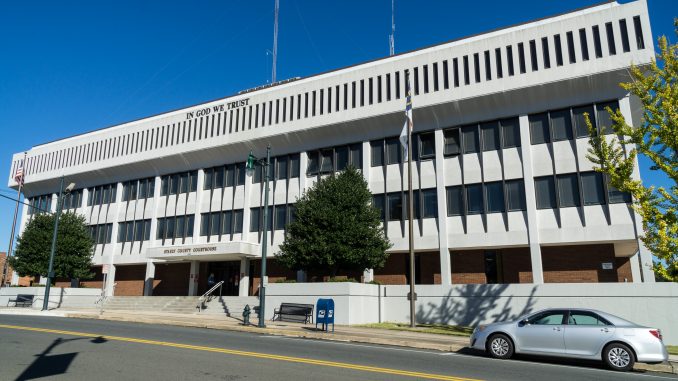
ALBEMARLE — Stanly and Montgomery have a new partnership as the N.C. General Assembly enacted changes to judicial and prosecutorial districts over the veto of Gov. Cooper last week. House Bill 717, sponsored by Rep. Justin Burr (R-Stanly), adds Montgomery County to judicial district 20A and prosecutorial district 28 with Stanly County. Montgomery was previously paired with Randolph County in prosecutorial district 37 and judicial district 19B. Randolph will now be the sole member of those two districts.
Stanly County District Attorney Lynn Clodfelter expressed his support for the changes. “This merger is a good fit for both counties,” said Clodfelter. “Our populations and location work well with each other.”
The geographic shift will also bring personnel changes to the bench and the district attorney’s office. According to the bill language, the new prosecutorial district will have six assistant district attorneys, up from the five that supported Clodfelter before.
“Our intention is to keep an assistant DA in Montgomery on a regular basis,” said Clodfelter.
On the judicial side, the new district will be home to three district court judges, up from two. At the superior court level, the district will expand to two resident superior court judges. The new district court seat will start Jan. 1, 2019, with an election to fill the seat in 2018. The superior court seat will start Jan. 1, 2021, with an election in 2020.
Other notable changes to the court systems were brought about by House Bill 717. Onslow County moves from a single-county district into a three-county district with Duplin and Jones to form a unified judicial district 4. Hoke County leaves Anson, Richmond and Scotland to join with Moore County in judicial district 19D.
The prosecutorial realignment results in Scotland County joining Anson and Richmond in a three-county district 21.
While the changes are now law, the underlying bill was controversial and went through eight initial versions and worked through committees in the House and Senate for over a year before ratification.
In his veto statement, Gov. Cooper said, “Legislative attempts to rig the courts by reducing the people’s vote hurts justice. Piecemeal attempts to target judges create unnecessary confusion and show contempt for North Carolina’s judiciary.”
Ultimately, the bill became law with a 74-45 vote to override the governor’s veto in the House and a 30-16 vote in the Senate.
“I appreciate Rep. Burr’s efforts to bring this merger to completion,” said Clodfelter. “I believe this will help our two counties maintain our status as a judicial and prosecutorial district in the future.”



